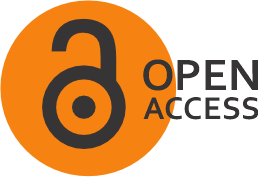Adoption of online travel agency platforms by small and medium hotels in Srinagar: Barriers, benefits, and digital readiness

Published online: 4 Oct 2025
Abstract
Purpose: This study aims to examine the adoption of Online Travel Agency (OTA) platforms, marketing strategies, and operational challenges faced by small and medium-sized hotels in Srinagar. The research focuses on identifying barriers and benefits associated with digital adoption and understanding how these hotels maintain competitiveness in a dynamic tourism environment.
Methodology: A qualitative research design was employed, utilizing semi-structured interviews with hotel operators. Thematic analysis was conducted to identify recurring patterns and key themes, providing an in-depth understanding of operational practices and strategic choices.
Findings: The analysis revealed five major themes: economic constraints, digital adoption challenges, relational marketing strategies, competitive pressures, and leveraging local cultural identity. While financial limitations restrict formal marketing, personalized guest engagement and promotion of cultural authenticity emerge as critical strategies. Digital tools such as OTAs and social media offer significant opportunities for market visibility but require training and capacity-building for effective use.
Implications: The findings highlight the importance of context-specific strategies for small and medium-sized hotels. Recommendations include skill development programs, collaborative marketing initiatives, promotion of local culture, and policy support to enhance competitiveness and sustainability. These insights provide practical guidance for hotel operators, tourism planners, and policymakers in emerging urban tourism destinations.
References
Braun, V., & Clarke, V. (2006). Using thematic analysis in psychology. Qualitative research in psychology, 3(2), 77-101. DOI: https://doi.org/10.1191/1478088706qp063oa
Buhalis, D., & Amaranggana, A. (2015). Smart tourism destinations enhancing tourism experience through personalization of services. In I. Tussyadiah & A. Inversini (Eds.), Information and Communication Technologies in Tourism 2015 (pp. 377–389). Springer. https://doi.org/10.1007/978-3-319-14343-9_28 DOI: https://doi.org/10.1007/978-3-319-14343-9_28
Buhalis, D., & Leung, R. (2018). Smart hospitality—Interconnectivity and interoperability towards an ecosystem. International Journal of Hospitality Management, 71, 41–50. https://doi.org/10.1016/j.ijhm.2017.11.011 DOI: https://doi.org/10.1016/j.ijhm.2017.11.011
Chamboko-Mpotaringa, M., & Tichaawa, T. (2025). Tourist-Centric Framework to Align Digital Marketing Strategies in Tourism. Tourism: An International Interdisciplinary Journal, 73(3), 429-448. DOI: https://doi.org/10.37741/t.73.3.3
Creswell, J. W., & Poth, C. N. (2016). Qualitative inquiry and research design: Choosing among five approaches. Sage publications.
Hennink, M. M., Kaiser, B. N., & Marconi, V. C. (2017). Code saturation versus meaning saturation: how many interviews are enough?. Qualitative health research, 27(4), 591-608. DOI: https://doi.org/10.1177/1049732316665344
Kumar, M. A., & Ayedee, D. N. (2021). Technology Adoption: A Solution for SMEs to overcome problems during COVID-19. Forthcoming, Academy of Marketing Studies Journal, 25(1).
Law, R., Leung, R., Lo, A., Leung, D., & Fong, L. H. N. (2015). Distribution channel in hospitality and tourism: Revisiting disintermediation from the perspectives of hotels and travel agencies. International Journal of Contemporary Hospitality Management, 27(3), 431–452. https://doi.org/10.1108/IJCHM-11-2013-0498 DOI: https://doi.org/10.1108/IJCHM-11-2013-0498
Munanura, I. E., Backman, K. F., Hallo, J. C., & Powell, R. B. (2016). Perceptions of tourism revenue sharing impacts on Volcanoes National Park, Rwanda: A Sustainable Livelihoods framework. Journal of Sustainable Tourism, 24(12), 1709-1726. DOI: https://doi.org/10.1080/09669582.2016.1145228
Navío-Marco, J., Ruiz-Gómez, L. M., & Sevilla-Sevilla, C. (2018). Progress in information technology and tourism management: 30 years on and 20 years after the internet-Revisiting Buhalis & Law's landmark study about eTourism. Tourism management, 69, 460-470. DOI: https://doi.org/10.1016/j.tourman.2018.06.002
Palinkas, L. A., Horwitz, S. M., Green, C. A., Wisdom, J. P., Duan, N., & Hoagwood, K. (2015). Purposeful sampling for qualitative data collection and analysis in mixed method implementation research. Administration and policy in mental health and mental health services research, 42(5), 533-544. DOI: https://doi.org/10.1007/s10488-013-0528-y
Tussyadiah, I. P., & Pesonen, J. (2016). Impacts of peer-to-peer accommodation use on travel patterns. Journal of travel Research, 55(8), 1022-1040. DOI: https://doi.org/10.1177/0047287515608505
Ye QiAng, Y. Q., Law, R., & Gu, B. (2009). The impact of online user reviews on hotel room sales. DOI: https://doi.org/10.1016/j.ijhm.2008.06.011
License
Copyright (c) 2025 The Author(s). Published by Borneo Novelty Publishing

This work is licensed under a Creative Commons Attribution 4.0 International License.
Permission is granted subject to the terms of the License under which the work was published. Permission will be required if your reuse is not covered by the terms of the License.

